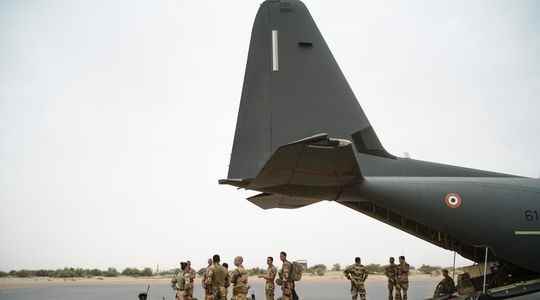It was believed to have hit rock bottom in relations between Paris and Bamako on April 21, when the French army accused its counterparts, with video support, of having made a fake mass grave in Gossi (in northern Mali) . The goal, according to the tricolor staff? Blame the French soldiers who had just left the Gossi base as part of their gradual withdrawal from the country. Corpses manipulated, therefore, to serve a sordid information war between the two countries. But this case was not the last episode of the sad soap opera…
Monday, May 2, the Malian state denounced the defense agreements made with France since the beginning of the intervention, in 2013, of the anti-terrorist operation Serval, today known as Barkhane. “This is an unprecedented scenario, comments Julien Antouly, doctoral student in the law of armed conflict at the University of Paris-Nanterre, based in Bamako. While Barkhane’s withdrawal is underway, the Malian authorities are taking action aimed at make the French presence illegal on their territory.”
Bamako justifies its decision by the “deep deterioration of military cooperation with France” for which only Paris is responsible, according to the official press release. He criticizes “the unilateral attitude of the French partner”, accused of having decided to withdraw from Barkhane without consulting Mali. In December 2021, Prime Minister Choguel Maïga had already accused France of “abandonment in full flight” at the rostrum of the UN General Assembly.
At the time, the Malian government had contacted the Russian company Wagner to offer the services of its mercenaries. The French army, in difficulty in the Sahel, where jihadist violence thrives despite its presence and where anti-French sentiment is rising, then invoked this pact, incompatible with its intervention, to hasten its departure from Mali. But the dismantling of the bases is not done in a day. Started in February, it must end, according to the schedule set by Emmanuel Macron, in mid-August.
The French general staff and the Quai d’Orsay condemned, on May 3, the “unjustified” rupture of these defense agreements and “contest any violation of the bilateral legal framework”. Still, this decision risks further complicating Barkhane’s task. “The three agreements that bind France and Mali are denounced, but their effective date is not the same, details Julien Antouly. The defense cooperation treaty, which dates from 2014, provides for six months’ notice. months, which Mali seems ready to respect. On the other hand, the two other texts, which govern the status of soldiers engaged in military operations, do not stipulate an end clause. In this case, the Vienna Convention on the Rights of treaties applies. It provides for twelve months’ notice, unless one of the two parties to the agreement has committed a material breach. However, it is clear, from reading the government’s press release, that the Malian authorities accuse France for not having respected the agreements, and therefore give themselves the right to break them with immediate effect.
For the French army, the worst scenario is looming. The staff of the armies, however, claims not to change its plans. “The disengagement of the Barkhane force from Mali will continue in good order and in security, he declared in a press briefing on May 3. We consider that the legal analysis presented by the Malian authorities is not founded in to the extent that there is no known and documented violation of these agreements.” There is therefore no reason for Barkhane to pack up overnight, according to the French army.
But if Bamako carries out its threats, the freedom of movement of French soldiers on the territory and in the airspace, as well as their visa exemption – all clauses provided for in the agreements denounced – will be hampered. The risk of a clash between the two countries, still recently allied, has never been so high.
“Everything will depend on the attitude of the Malian authorities, slips a senior French officer. Concretely, if ever the Malian armed forces set up a roadblock aimed at blocking a convoy or a unit of the Barkhane force, the Barkhane force will pass. Even if it means further accentuating the break between Paris and Bamako.
